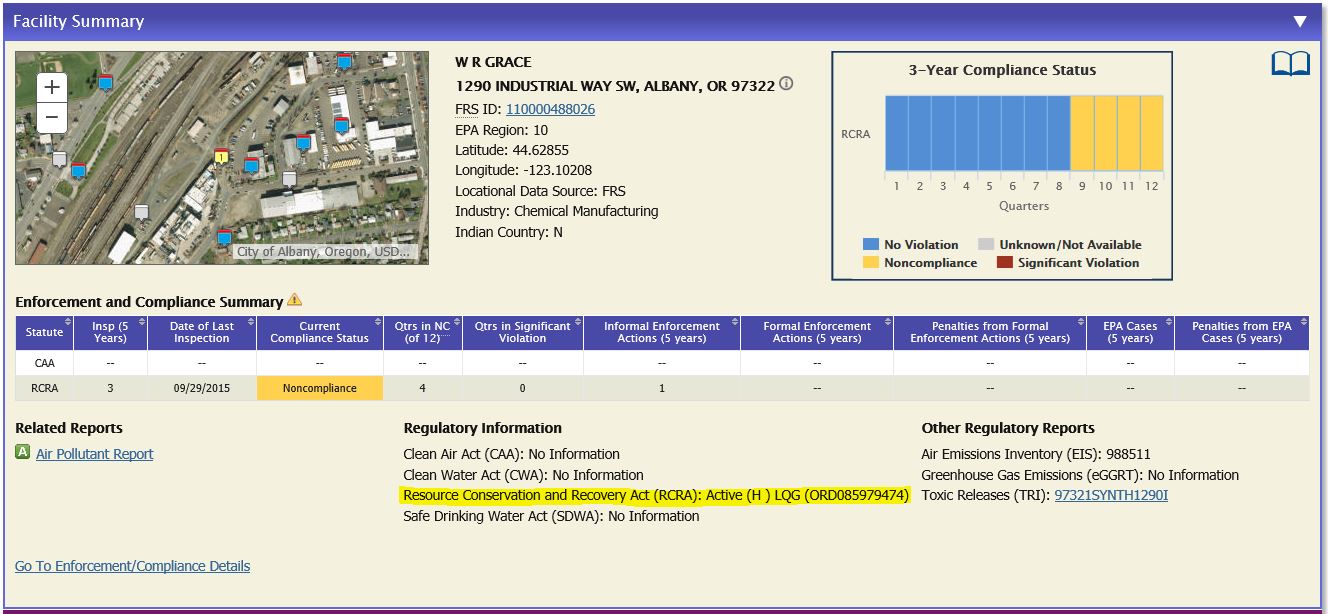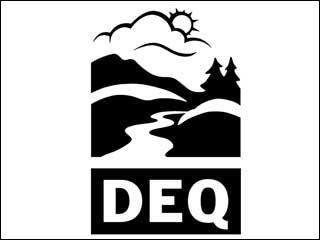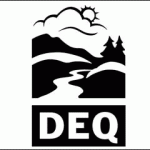The Bullet:
A private homeowner – a person in the eyes of the regulations – was issued a civil penalty of $7,395 for the disposal of household waste on their property.
Who:
- The Oregon Department of Environmental Quality (OR DEQ, or just DEQ if you live in Oregon).
- Contact: Katherine Benenati / Public Affairs Specialist / Eugene, OR / 541-686-7997 / benenati.katherine@deq.state.or.us
- A person of Grants Pass. I won’t name the person in this article. I will refer to them as person. See the DEQ news release if interested.
What:
From on or about January 2017 through December 5, 2017, person disposed of approximately 80 cubic yards of household garbage and other debris at their property by open burning and burial. Upon discovery and subsequent investigation by DEQ the person was issued a civil penalty of $7,395 for violation of Oregon state regulations. DEQ also ordered that the person clean up the property within 30 days. Person didn’t appeal the penalty.
Daniels Training Services, Inc. 815.821.1550 |
Where:
The violations took place at the person’s property in Grants Pass, OR.
When:
- Violations took place from on or about January 2017 through December 5, 2017.
- On March 13 2017, person burned household garbage.
- On May 5, 2017, DEQ staff observed that the debris pile had been burned and some debris was buried on the property.
- Enforcement letter from DEQ to person dated December 5, 2017.
- DEQ News Release dated March 27, 2018.
Why:
From the DEQ News Release:
Burning household trash can pollute the air and threaten public health, especially for the young, elderly and those with respiratory conditions. Illegal dumps can pollute ground and surface water. Such dumps can also threaten human health by attracting insects and rodents.
How:
The act of discarding a material – such as by open burning or burial or other activities – causes it to be subject to federal and state regulations as a solid waste. This includes materials discarded from a household by a private citizen. Don’t be misled by the term “solid waste”, a solid waste may be in the form of a solid, semi-solid, liquid, or containerized gas (e.g. aerosol can).
Also, under federal and state regulations a “person” includes an individual as well as a corporation and others. Read: Who or What is a “Person” in the Eyes of the USDOT/PHMSA and the USEPA?
Oregon, like most states, has an authorized hazardous waste program. This means that it may create and enforce its own state-specific regulations for the management of hazardous waste. Further, under subtitle D of RCRA, the cradle-to-grave management of non-hazardous waste is largely left to the states.
Contact me with any questions you may have about the generation, identification, management, and disposal of hazardous waste Daniels Training Services, Inc. 815.821.1550 |
Conclusion:
I believe this incident is significant due to the severity of the penalty ($7,395!) and the fact that it was levied against a private homeowner and not a business or government agency. It’s clear to see that DEQ, like other state and federal agencies, takes its enforcement authority seriously. While the creation of new legislation and regulations may lessen from one federal administration to another, the enforcement of existing regulations – especially at the state level – can proceed and even increase.
I think any business in Oregon that generates a waste should read this incident as it may have been intended: A warning from DEQ that existing regulations will be strictly enforced and there will be consequences for their violation.
Fortunately for this person, their solid waste is not regulated as a hazardous waste due to the Household Waste Exclusion from Definition as a Hazardous Waste per 40 CFR 261.4(b)(1).
What could this person have done differently? Read: Proper Management of Household Hazardous Waste




